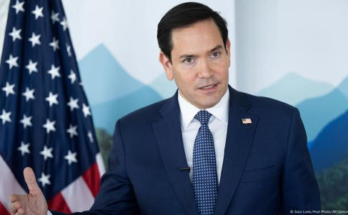Donald Trump’s assertive economic nationalism has been synonymous with his political identity for years, framed as a way to safeguard American industries and return jobs to the US, but as he sets his sights on returning to the White House in 2024, many observe that his protectionist policies, particularly his aggressive position on trade, have heightened the exposure of US firms to risks abroad, particularly from foreign government retaliation.
The Weaponization of Trade
During his first term, Trump imposed sweeping tariffs across a range of imports, especially from China to equalize the playing field and address what he characterized as unfair trade practices. Instead, it set off a trade war, and while some industries were given temporary protection domestically, many US firms became embroiled in the resulting tussle.
For example, China imposed tariffs on US goods in return for US tariffs on goods—major US exporters, like Boeing, Apple, and agricultural firms, were hit particularly hard. The impact of China’s tariffs was not symbolic; quite the opposite, retaliatory tariffs hit the heart of some of America’s most competitive and globally integrated firms, striking at their market access and brand reputation in important international markets
Risks for Global Giants
Large U.S. technology and manufacturing firms operate through global supply chains and global markets. When Washington engages in an antagonistic trade posture, it encourages other countries to activate their own economic tools, such as import prohibitions, regulatory barriers, antitrust investigations, and direct support for domestic challengers.
Trump’s approach to tariffs was to lay down a broad brush, suspecting both friends and foes. This estranged longstanding partners in Europe and North America, resulting in counter actions by the EU, more than a half-dozen retaliatory tariffs from Canada, and even Japan signaling to Washington that the new approach to trade in the United States made the business environment less predictable than it used to be. In oscillating between economic punitive measures and expressions of friendship, American companies experienced not just increased costs, but a hostile business environment abroad.
Undermining Soft Power and Trust in Markets
The unintended consequence of the trade brinksmanship pursued by Trump was the undermining of trust in the United States as a reliable trading partner. Multinational corporations desire predictability and stability, and their own access to soft power was put into question when the Trump’s embracing of uncertainty caused World leaders to study backup strategies by creating smaller alliances and trade agreements without the U.S. The Comprehensive and Progressive Agreement for Trans-Pacific Partnership (CPTPP)
is one example of a trade pact that excluded the United States, so former U.S. national leadership wanted confirmed stability and prediction as the U.S. moved toward different alliances and risked soft power. American companies were more.
The Risk of Future Retaliation
Should Trump return to the presidency and reactivate—or escalate—his non-cooperative trade stance, the primary U.S. companies will again face retaliation. China, the EU, and important other economies have articulated their willingness to retaliate. In an interconnected global economy, retaliation is not limited to tariffs; it can also mean prioritizing local companies in government contracts, restricting digital market access, and using data and cybersecurity rules to prohibit American companies.
Additionally, foreign governments may view Trump’s return as an opportunity to utilize U.S. strategies, further heightening tensions in the international trading environment.
Conclusion
Donald Trump’s America First policies were premised on the desire to protect U.S. interests. In reality, they put U.S. companies—especially the strongest and most globally focused—in situations beholden to new and dangerous retaliatory measures. As the world closely watches and awaits the unfolding 2024 election, businesses and international partners are preparing for the possibility that Trump’s return means a more volatile economic confrontation that American companies may not be able to withstand a second time.



